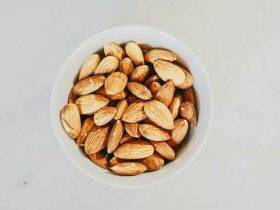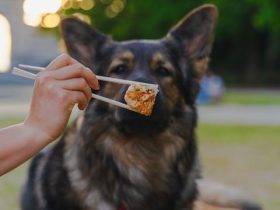Probiotics For Dogs: The Ultimate Guide
Dogs are man’s best friend, and as pet owners, we must do everything we can to keep our furry companions healthy and happy. One often overlooked area of canine health is gut health and digestion. The truth is, that probiotics can play a huge role in supporting your dog’s digestive system and overall wellness.
In this comprehensive guide, we will explore everything you need to know about probiotics for dogs. We’ll define what probiotics are, explain their benefits, recommend the best types of probiotics for dogs, and provide tips on choosing and administering probiotic supplements. By the end, you’ll have a complete understanding of how probiotics can improve your dog’s quality of life.
What Are Probiotics?
Probiotics are live microorganisms that provide health benefits when consumed. The gut contains trillions of microbes like bacteria, fungi, and yeast. Probiotics help maintain the balance of these microbes in the gastrointestinal (GI) tract. They work by crowd-pleasing potentially harmful “bad” bacteria and supporting the growth of “good” bacteria in the gut.
Some of the most common and well-known probiotic strains include Lactobacillus, Bifidobacterium, Enterococcus, and Saccharomyces. These microorganisms occur naturally in various fermented foods like yogurt, kefir, kimchi, kombucha, and sauerkraut. Probiotic supplements provide concentrated doses of beneficial gut bacteria to support intestinal and overall health.
Benefits of Probiotics for Dogs
Probiotics offer various health perks for our canine companions. Here are some of the top ways probiotics can boost your pup’s wellness:
Improved Digestion
The gut microbiome plays a vital role in breaking down foods and extracting nutrients. Probiotics help regulate digestive functions like reducing gas, constipation and diarrhea. They promote regular and healthy bowel movements.
Allergy Relief
There is a link between unhealthy gut flora and allergies in dogs. Probiotics may decrease inflammation and severity of food allergies, environmental allergies and atopic dermatitis in some dogs.
Urinary Tract Health
The gut-urinary tract connection is strong. Probiotics aid in flushing toxins and bacteria from the urinary tract, lowering risks of urinary tract infections (UTIs).
Immune Support
Around 70-80% of the immune system resides in the digestive tract. A balanced gut microbiome strengthens the immune defenses and reduces susceptibility to infections.
Dental Health
Certain probiotic strains like Lactobacillus acidophilus produce acids that fight harmful oral bacteria and reduce dental plaque and gum disease in dogs.
Skin & Coat Health
Healthy skin requires a balanced inner ecosystem. Probiotics from inside nourish skin and coat quality from within by reducing inflammation and moisturizing the skin.
These are just some of the top studied ways probiotics from supplements or foods can optimize your dog’s physiology and quality of life. Proper gut health is integral to overall wellness.
Best Probiotic Supplements For Dogs
With the many probiotic options on the pet market, choosing the right dog supplement can seem overwhelming. Here are a few highly-rated, veterinarian-recommended probiotic brands and formulations to consider:
Fortiflora Pet Probiotic
- Made by Purina, one of the most trusted pet brands
- Contains 5 strains of probiotics including Bifidobacterium animalis
- Helps support digestive and immune health
- Easy-to-give powder or chew formulation
Vetericyn Probiotic Spray
- All-natural spray with no added sugars or preservatives
- Features 11 probiotic strains including Lactobacillus acidophilus
- Topical spray boosts skin and coat health from outside
- Soothes itching and repairs protective gum barrier
Nutramax Proviable-DC Capsules
- Multi-strain probiotic including Enterococcus faecium
- Boosts both large and small intestinal microflora
- Helps regulate GI functions and nutrient absorption
- Chewable capsules for easy dosing
Zesty Paws Probiotic Bites
- Delicious soft chew treats that dogs love
- Includes Lactobacillus acidophilus and plant-based prebiotics
- Supports digestion and bowel regularity
- Vegan and gluten-free formulation
These are highly pure, concentrated and veterinarian-recommended brands to consider starting with. Always discuss dosage and suitability with your vet before adding a probiotic supplement to your dog’s diet or routine.
Choosing the Right Probiotic Strains for dogs
Within supplement brands, certain probiotic strains target specific health needs better than others. When choosing a formulation, consider your dog’s individual issues:
- For skin or coat problems – Look for Lactobacillus acidophilus or Bifidobacterium animalis which soothe itching and inflammation.
- To manage diarrhea – Try enterococcus faecium or Lactobacillus casei strains renowned for firming up stool.
- For immune support – Saccharomyces boulardii and Bifidobacterium longum help strengthen defenses against infections.
- To promote oral health – Acidophilus, Bifidobacterium and Enterococcus faecium address plaque and gingivitis.
- For allergies – Multi-strain varieties including Lactobacillus plantarum synergistically reduce allergy flare-ups.
Talk to your vet about customizing a probiotic to your dog’s individual symptom profile. Different formulations target unique aspects of health.
Proper Administration and Storage of Probiotics for dogs
To ensure maximum health perks from probiotics, some important guidelines for proper storage and administration in dogs include:
- Store in a cool, dry place away from direct sunlight as per package instructions. Most last 4-6 months from opening.
- Give probiotics at least 1-2 hours before or after medication/supplements to avoid interactions. Never exceed recommended dosage.
- For picky eaters, hide powder or capsules in a small amount of peanut butter or pumpkin puree.
- Check if your dog’s strain requires refrigeration after opening and follow instructions carefully.
- If using a spray, apply to coat/skin after baths when pores are open to aid absorption.
- Stop use if adverse reactions like gas/diarrhea occur and consult vet. Replace with a different strain.
Following correct storage guidelines helps maintain maximum bacterial potency for best results. Always check with your vet on individual best practices.
Probiotics For Puppies and Senior Dogs
Certain life stages require tailored probiotic approaches:
Puppies
Nursing pups receive probiotics from mom’s milk. Supplementing between weaning to 6 months aids gut and immune maturity. Look for puppy probiotics or varieties enriched with prebiotics.
Senior Dogs
Aging slows the gut’s renewal cycle. Seniors need extra support to balance pH and flora. Probiotics fortify immune defenses weakened with age. Choose cultures optimized for elderly dogs’ unique needs.
Dogs with Health Issues
Ill pups may need to replenish depleted good microbes. Prioritize gut healing,anti-inflammatory strains. Check for herb/nutraceutical blends alongside. Monitor effectiveness with vet.
Breed-Specific Concerns
Certain breeds tend towards gut issues like flat-faced pups. Seek hypoallergenic, soy/grain-free options vet-tailored for your breed’s dietary needs.
Always consult your vet when introducing supplements to these categories to choose targeted, age/breed-appropriate formulations. Proper gut health is even more vital at these vulnerable life stages.
FAQs About Probiotics For Dogs
Here are answers to some frequently asked questions regarding the use of probiotic supplements in dogs:
Q. When should I start giving my puppy probiotics?
A. You can start probiotics for puppies once they are fully weaned, usually around 6 weeks old. This helps establish healthy gut and immune balance early on.
Q. What if my dog won’t eat probiotic treats/supplements?
A. Try mixing powder/capsules into peanut butter or canned food. You can also look for probiotic sprays or gels meant for topical application on skin/coat.
Q. Are probiotics safe for all dogs?
A. Most dogs tolerate probiotics well. However, check with vet first if your dog has severe allergy, autoimmune or gut infection issues. Do not use in inflammatory bowel cases without vet supervision.
Q. How long until I see results from probiotics?
A. You may notice softer stools within a few days. For long-term gut/skin conditions, allow 2-6 weeks for complete replenishing of good bacteria and measuring symptom improvement.
Q. Can I give probiotics alongside medications/vaccines?
A. Space probiotic doses 2 hours before or after any medications, vaccinations or supplements to avoid interactions. Consult your vet for personalized advice






Leave a Reply